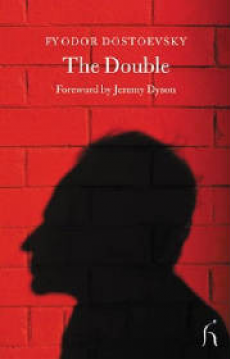
Email: reecejordan98@hotmail.co.uk
Total Article : 168
About Me:18-year-old sixth form student, studying English Literature, History and Government and Politics. My articles will broadly cover topics from the current affairs of politics to reviews of books and albums, as well as adding my own creative pieces, whether it be short fiction or general opinion.

One of Dostoevsky’s first novels – in fact his second – is a polarising one to say the least. With many critics describing it as ‘barely readable’ and even the novelist himself stating that he ‘did not succeed’ with it, I thought it was going to be a struggle. But then again, the great writer Vladimir Nabokov (who described Dostoevsky as on the whole, a ‘rather mediocre’ writer) lauded it as ‘a perfect work of art’. Nabokov does have a tendency to say things he doesn’t mean, though.
Regardless, I went into The Double with an open mind. It is the first Dostoevsky novel I have read having picked it up from a local bookstore for £2.50. It charts the downfall of Mr. Golyadkin, a bumbling mess of a man who is at pains to establish his place in society. His speech spurts out like a drunkard - oversaturated with idioms which never coalesce into coherence. He overanalyses the way in which he sits on a chair; he is overcautious with everything. Though you sometimes wish it was with everything. His behaviour has a tendency to take on bizarre turns. But as Dostoevsky keeps the narrative within his domain we never truly understand what is going on. By doing this, Dostoevsky thrusts us within the mind of those awkwardly mentally ill.
To further add to the heady confusion, there suddenly appears a double of Mr. Golyadkin who, at first seeming cordial, becomes intent on making the so-called ‘Mr. Golyadkin senior’ life hell. He exploits his timidity by using his own hard-work to further his own position within the workplace. He gains the friends that the former wishes he had. In fact, this double succeeds at pretty much everything the former Mr. Golyadkin wants to but can’t.
The novel throws up the question as to what makes one successful in 1800s Russia – if we were to replicate everything but one’s attitude how successful would they become? But then again, as the narrative progresses, we don’t even know if this double even exists. Is this just an outshot of Mr. Golyadkin’s personality? Is it just his succession from mild to severe mental illness; is he just a schizophrenic? Or is it, as W. J. Leatherbarrow suggests, 'the human will in its search for total freedom of expression becomes a self-destructive impulse’?
Whichever the theory, the ending still retains a cutting poignancy. After yet again embarrassing himself in front of his superiors by supposing that he was to elope with one of their adolescent daughters, Mr. Golyadkin is taken away by the doctor and the book is concluded. What happens to him after we don’t know. But even more suspiciously, what happens to his tormentor, his double?
Whilst polarising, The Double is still worth the read. Open up and plunge deep into a cacophony of confusion, hilarity and pathos.
Image Credits: wikipedia.co.uk

0 Comment:
Be the first one to comment on this article.